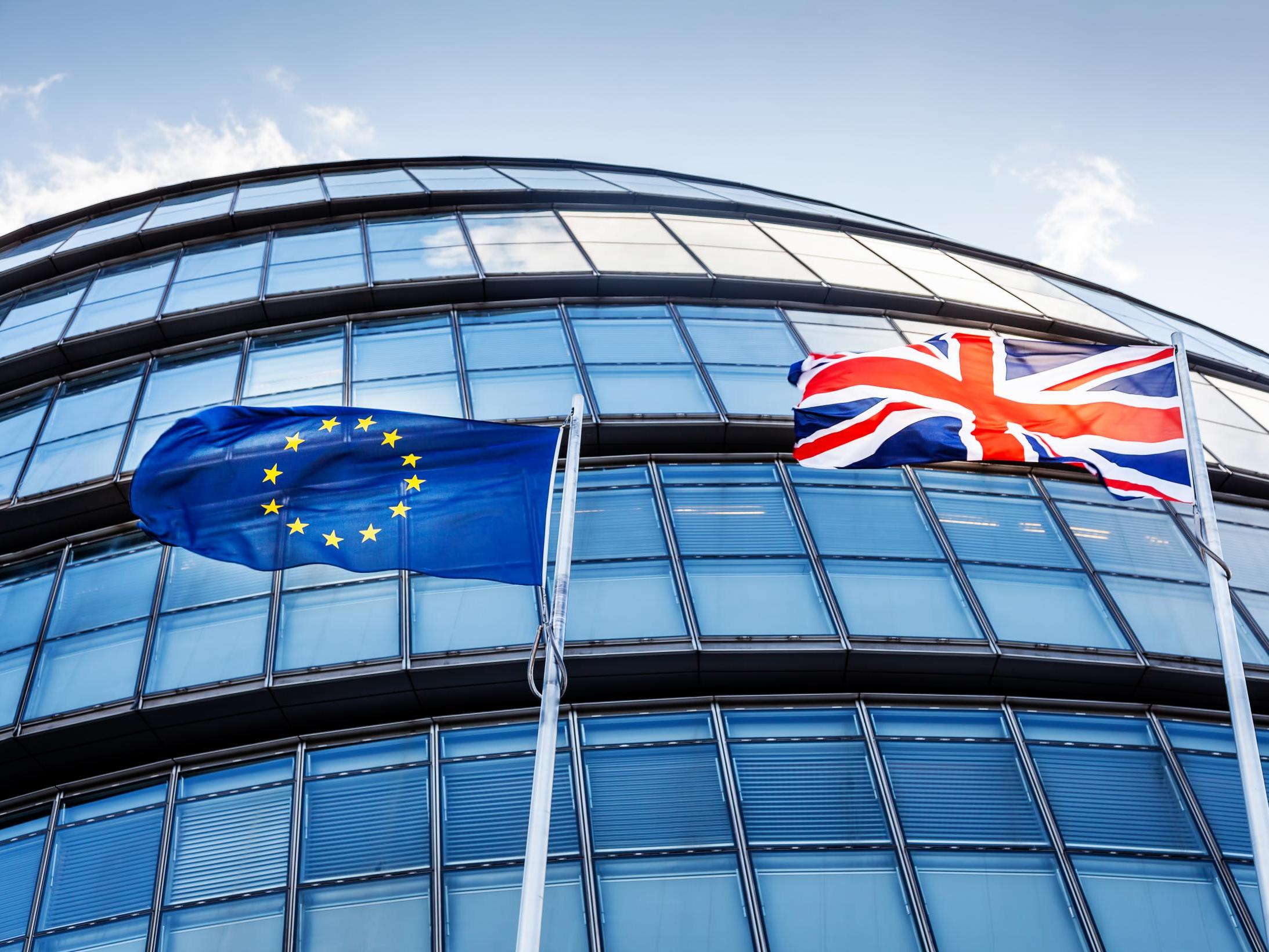The UK's political ties with Europe may have soured – but a strong economic relationship will continue
At a time when there is a surplus of money washing around the world seeking a home, it would be mad not to place some of those resources in the eurozone, writes Hamish McRae


Germany is manifesting an extraordinary disconnect between politics, the economy, and the financial markets. The government is in disarray, with Angela Merkel’s expected successor, Annegret Kramp-Karrenbauer, no longer seeking to take the job. Germany manufacturing has had the worst year for a decade and the January numbers show no signs of recovery. And yet the DAX, the main German share index, hit a record high yesterday morning.
This is part of a wider puzzle, for similar contrasts are evident in the other two largest eurozone economies, France and Italy. France has a deeply unpopular president, an economy that shrank in the final quarter of last year – and the CAC index is close to its all-time high, reached four weeks ago. As for Italy, the governing coalition is fragile, the economy is in recession, and the main share index, the MIB, while not quite at an all-time high was the highest since 2008. What’s up?
There is certainly a temptation to think that markets are nuts, or perhaps they play a game by rules that are different from those that the rest of us play by. But there is, I think a rational explanation that tells us a lot about Europe’s future.
The first point to make is that European politics may look a mess, but they are good enough. One of the big lessons of the past few years is that political upheavals do not necessarily unseat solid economies. The German economy does have problems but they are to do with falling demand in China and over-reliance on the motor industry. They are not to do with politics. Much the same logic applies to France, for while Emmanuel Macron may be unpopular, at least his reforms are heading in the right direction. Italy is different, for it has been the worst-performing of the large European economies for the past decade. But it does have a string of solid, successful companies, which in a sense float above the politicians.
The next part of the explanation is that while Europe looks like it is having a year of sombre economic growth, activity is reasonably solidly based. Unemployment varies across the eurozone but it has been coming down and in most of the region it is the lowest since the recession of 2009. If people have jobs they will spend money and consumption is, therefore, underpinning activity.
But most important of all, the world economy is awash with liquidity. Central banks have been pumping out money, and interest rates remain historically low. That money has to go somewhere and one of those places is into shares. Viewed globally, European shares seem to offer value vis-a-vis American ones, and they certainly offer better value than European government bonds, many of which are actually negative now. The yield on the 10-year German bonds is minus 0.39 per cent. Banks and some other institutions are required to hold them, but for most investors that makes no sense at all. Better to hold equities.
So what does all this tell us about Europe? There are, I suggest, two big messages.
One is that Europe can live with scratchy politics. The giant European corporations face many problems, of which the disruption from the coronavirus is the latest example. But so do all large companies. While the global economy continues to grow, most of them will prosper, even if current turmoil in their market pegs them back.
There are exceptions. Daimler Benz revealed yesterday that profits were way down and that it would cut both its workforce and its dividend. The share price at €43 is half the level of four years ago. But all economies have companies under structural pressure, and the market takes a broader view. The markets are looking beyond the coming dip and glimpse the brighter hills beyond.
The second message is that Europe, for all its long-term problems, still is a place where investors want to put their money. It is broad economy, with different competences. At a time when there is a surplus of money washing around the world seeking a home, it would be mad not to place some of those resources in Europe. Since it is pointless to buy bonds that money as to go into the main other possible areas, property and equities.
From a UK perspective, all this is welcome. The political relationship between the UK and the EU will evolve, maybe in an ill-tempered way. But the economic relationship will continue, unless politicians on both sides deliberately try to wreck it. Economics trumps politics, and in these strange days that comes as a bit of relief.
Join our commenting forum
Join thought-provoking conversations, follow other Independent readers and see their replies
Comments